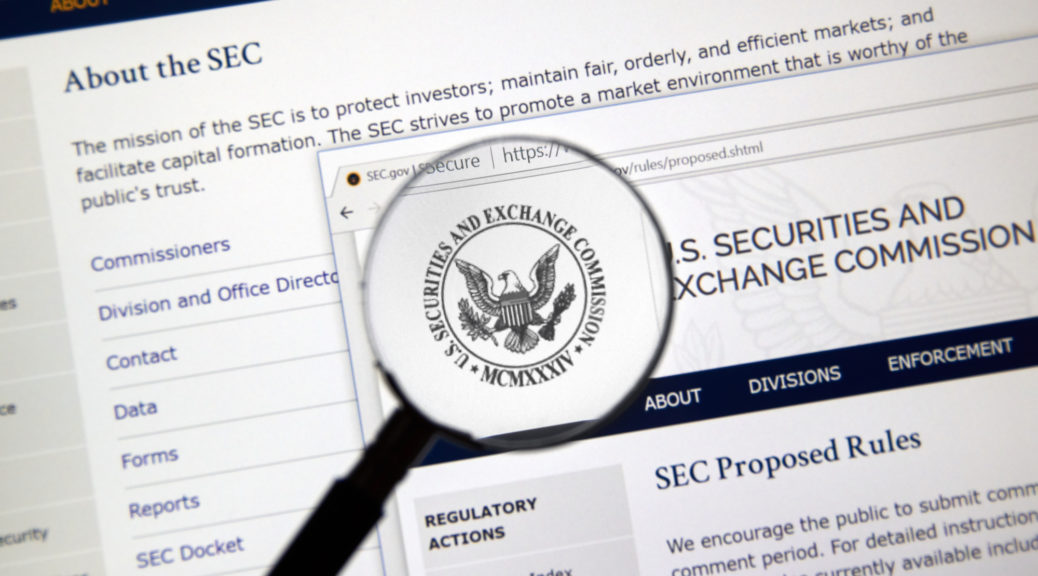On June 6, 2023, the Securities and Exchange Commission filed a 101-page Complaint against the US’s leading crypto exchange, Coinbase that distills to a single sentence: “Coinbase has never registered with the SEC as a broker, national securities exchange, or clearing agency, thus evading the disclosure regime that Congress has established for our securities markets.” Complaint ¶ 1. A day earlier, the SEC filed a much more aggressive Complaint against Binance – the world’s largest crypto exchange, seeking a “preliminary injunctive relief, including, but not limited to, asset freezes, a verified accounting, repatriation of assets, expedited discovery, preservation of documents and information, prohibition on the destruction of evidence, the appointment of a receiver” as well as disgorgement of profits and fines.
The SEC claims that Coinbase trades in digital assets with “the characteristics of securities” and references billions of dollars’ worth of assets as investment contracts under the famous Howey test. The SEC lamely begins by reciting the efforts by Coinbase to demonstrate its compliance with the Supreme Court’s Howey test. Complaint ¶¶ 103 – 110. The SEC also tries to use against Coinbase the fact that the company raised in its SEC disclosures that the assets made available for trading could possibly be considered investment contracts – in effect turning Coinbase’s indisputable instance of compliance with Securities laws against the company. See Complaint ¶ 112.
Looking to bury deep its dagger into the heart of the crypto industry, the SEC considers the following investment contracts: “SOL, ADA, MATIC, FIL, SAND, AXS, CHZ, FLOW, ICP, NEAR, VGX, DASH and NEXO NEXO – (the “Crypto Asset Securities”)”. Complaint ¶ 114. All totaled, these digital assets have a value of $37 billion. Similarly, the SEC’s Binance Complaint also focuses on some of these assets.
The SEC also complains that Coinbase’s Staking Program as applied to two of the above assets – ADA and SOL, also gives rise to the sale of unregulated investment contracts. See Complaint ¶ 339. On the very same date as the SEC’s Complaint, the NJ AG’s Office issued a Summary Cease and Desist Order against Coinbase for violations of New Jersey’s Securities Laws and corresponding penalties of $5 million in connection with Coinbase’s staking offerings.
The SEC’s targeted digital assets are tied to leading networks and platforms in this space – Solano (SOL), Cardano (ADA), Polygon (MATIC); as well as the leading means of powering the IPFS protocol necessary for the storage of media/data outside of a blockchain – Filecoin (FIL); metaverse player The Sandbox (SAND) and the leading “play to earn” platform Axie Infinity (AXS). Interestingly, NEXO can only be traded using the Coinbase Wallet and the FLOW coin of Dapper Labs is already subject to a securities lawsuit. Whereas the SEC targeted dominant services and their tokens – comprising the bulk of its Complaint, the SEC ignores many others with arguably a more visible Howey problem, e.g., Civic Technologies, Inc. with its CVC utility token.
Unlike with Binance, the SEC does not look to freeze Coinbase’s assets. Nearly as bad, however, the SEC does seek injunctive relief against Coinbase that would prevent its current business from going forward as well as Coinbase’s disgorgement of profits and the assessment of fines. In effect, the SEC is looking to shutter two of the largest crypto exchanges as well as obtain a ruling that the most important crypto monetization tools in existence today are improperly fueled using unregulated securities.
It’s not exactly clear why the SEC is looking to kill the crypto industry or at drive it from the United States but one thing is certain – that is exactly what might happen if all the allegations made by the SEC turn into favorable rulings. One potential canary in the coalmine is the Ripple lawsuit filed by the SEC a few years back that will soon become ripe for adjudication. It can only be hoped that this very-well funded company makes some inroads with its defense that can spill over to Coinbase.
